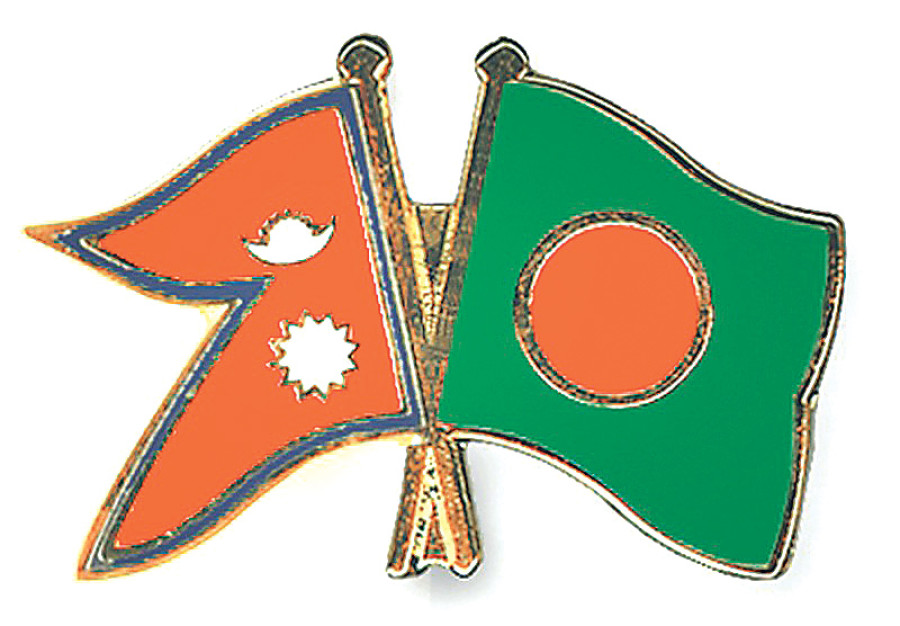Money
Nepal-Bangladesh trade talks to focus on barriers
Nepal and Bangladesh will discuss trade facilitation and elimination of tariff and non-tariff barriers at the fourth commerce secretary-level trade talks scheduled to start on Wednesday in Kathmandu.
Nepal and Bangladesh will discuss trade facilitation and elimination of tariff and non-tariff barriers at the fourth commerce secretary-level trade talks scheduled to start on Wednesday in Kathmandu.
According to the Ministry of Industry, Commerce and Supplies, Nepal will ask Bangladesh to address hurdles to exporting acrylic yarn to Bangladesh, harmonise sanitary and phytosanitary (SPS) measures and review the list of 108 Nepali products which have duty free access to the Bangladesh market.
The two-day meeting will also discuss preferential treatment for Bangladeshi products in the Nepali market, said the ministry.
Ministry spokesperson Rabi Shankar Sainju said a 11-member Bangladeshi delegation would be arriving in Kathmandu to participate in the meeting. “The discussions will mainly focus on solving issues related to trade and transit facilities, which are the main hurdles to enhancing trade between the two countries,” Sainju said. The two countries agreed to hold annual trade talks at the secretary level in 2008. Following the opening of Kakarbhitta-Phulbari-Banglabandha transit route in 1997, Bangladesh has permitted Nepal to use the port facilities in Mongla. Bangladesh has also provided an additional rail transit corridor to Nepal via Rohonpur-Sighbad.
However, Nepali exporters are still facing a number of hurdles while exporting goods to India and third countries including Bangladesh.
According to a study conducted by South Asia Watch on Trade, Economics and Environment (Sawtee) in 2012, SPS and technical barriers to trade (TBT) make up 80-85 percent of the non-tariff barriers to Nepali exports.
Exporters need to submit separate radiation free certificates for a number of exports to Bangladesh. Similarly, Bangladesh allows the import of acrylic yarn only by sea. Nepali traders who have been dispatching acrylic yarn to Bangladesh via Bangalabandh now need to send their shipments through Chittagong which has raised their trading costs, as per the ministry.
Nepal has long been asking Bangladesh for easy visa facility for Nepalis, preferential treatment for a number of Nepali goods and access to Bangladeshi ports for exporting good to third countries. Sainju said the trade talks would concentrate on concluding major items on the agenda that could not be resolved during previous talks, particularly on duty free access for Nepali goods.
According to the ministry, reviewing the list of Nepali exportable goods for duty free access to Bangladesh will be in the wish list of the Nepali side. During the last trade talks held in Dhaka in 2013, Bangladesh granted duty free access for 108 items. “However, it does not include Nepal’s major exportable items,” Sainju said.
Bangladesh has also been demanding similar facility for 64 Bangladeshi goods to the Nepali market. The items for which Bangladesh has sought duty free access include fish products, medicines, juice, soft drinks, raw jute and some agricultural products.
Similarly, Nepal will be asking Bangladesh to allow unrestricted entry for traders. Currently, operators of loaded containers are permitted travel only up to the Inland Container Depot situated in Banglabandha. “The ministry will be asking Bangladesh to simplify entry permit and visa procedures for the cargo and drivers,” Sainju said.
Bangladesh is one of the main export destinations for Nepal. Lentils, fruits and fruit juice, wheat, oil cakes, hide and skin and vegetables are the major exports to Bangladesh. Nepal’s exports stood at Rs1.04 billion last year, down 13.3 percent from the previous year.
Similarly, Nepal has been importing pharmaceutical goods, electronics, juice, medicines, cotton, solar batteries, readymade garments, cosmetic items, raw jute and plastic furniture from Bangladesh. In 2016-17, Nepal imported goods worth Rs4.22 billion from Bangladesh.




 9.7°C Kathmandu
9.7°C Kathmandu














